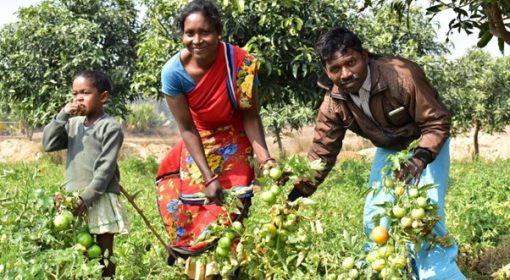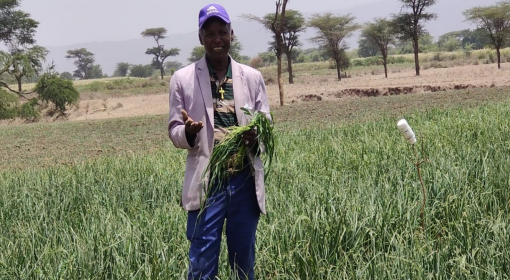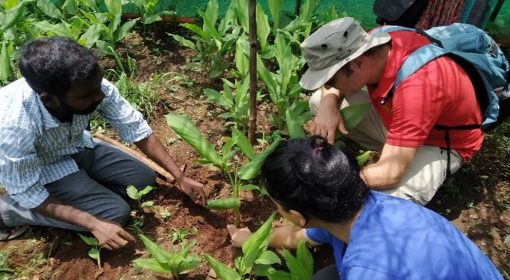by Pratik Ranjan (MetaMeta)
Unlocking the power of small and marginal farmers that constitutes around 85 percent of the farming population, is one of the primary goals for the farmers welfare. This is the focal point on which the Farmer Producer Company (FPC) works as a vehicle to enhance farmer income. So far in India, more than 15,000 FPCs have been formed and another same number are in line for promotion in the coming years by 2025. Some of the federations in the form of FPCs in this context have shown positive and encouraging results through organising seed production, establishing a proper market linkage and initiating the procurement from the farmers at Minimum Support Price (MSP). However, recent years have also seen that the farmers have moved beyond just seed production and have started working on the value chain through processing of the primary products before selling it to the consumers.
FPCs with right amount of support can bring tremendous change in the field of agriculture and other allied & related sectors and this can be possible when the small farmers are mobilised and bought together to form a larger group under one umbrella, build their capacity and leverage the strengths collectively to enhance the overall production capacity and marketing opportunities.
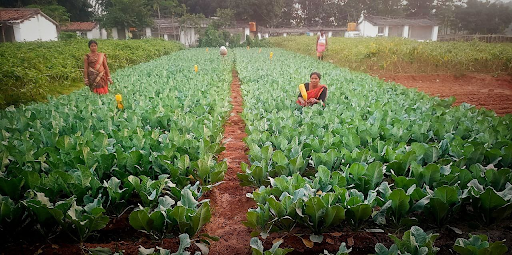
In the similar line, the FPC namely Mannonati Mahila Kisan Utpadak Company Limited was formed by the Indian organisation PRADAN (Professional Assistance for Development Action), Peterbar team in Gola Block of Bokaro district in 2021. Within one year of formation, the company has shown positive growth in terms of volume of business and addition of shareholder members. In the last six months, the company has done a business of Rs. Twenty Lakhs which is expected to increase to Rs. Fifty Lakhs by the end of FY 2022-23. The FPC was registered with 845 women farmers initially and now has increased to 3000 members from 52 farmers Producer Group as shareholders. Gola is the one of the many blocks where we can find diversity in the crops grown such as sweet potato, millet, paddy, maize, tomato, cauliflower, watermelon, ladyfinger and many more.
As we talk about the journey of this FPC, the Executive from PRADAN, Peterbar team i.e., Akansha Mishra says that the initial days were quite difficult for them in adding more shareholders to the company. She says that a specific strategy was devised to add 2200 members in the FPC as till December 2021, there were only 845 members.
However, before diving deep into the strategy part, something which makes this FPC strong is that they have a proper hierarchy of members starting from Promoters, Board of Director (BoD) members, Community Resource Person, Supervisor followed by farmers for getting the demand and selling the products in the market.
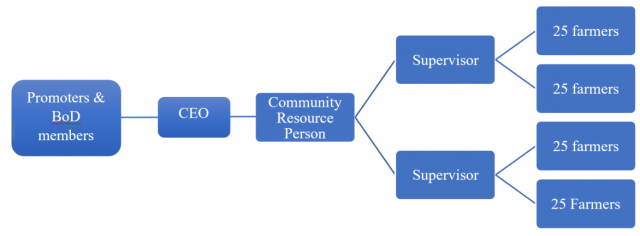
There is one supervisor for monitoring 50 farmer members. A total of 52 Supervisors are there and per 10 supervisors, there is one Community Resource Person. These supervisors are reporting to the CRPs. As of now, there are 7-8 CRPs that are actively working with the FPC. They are reporting to CEO, FPC.
Although the journey of FPC formation started in July 2021, the speed with which it should accelerate was not there till December. This was because there was a clear lack of information regarding how the Producer Company will operationalise and function. Hence to overcome this issue, in December 2021 the officials involved in FPC formation from Peterbar went for an exposure visit to Khunti Block office of Jharkhand to understand the functioning of the FPC which includes seed procurement, marketing, shareholders addition strategies adopted so far etc. The same what they learnt from the visit was taught to the Supervisor, CRPs resulting to which in a span of 3 months from January-March 2022, a total of 2155 members were added in the FPC following the strategies namely miking in the villages, pamphlet distribution, meeting at SHGs and VOs level by the supervisor etc.
Post-addition of members as shareholders in the company by March 2022, the next task was generating business for the FPC with the initial idea of working on the input side. To achieve this, the supervisor played a major role in doing a preliminary village survey for generating the demand for seeds, getting it from FPC and then distributing the same to the farmers. These seeds distributed to the farmers at the same time brought many advantages to the FPC like low cost of seeds for bulk orders during purchase, reduced bulk transportation cost etc which farmers also understood.
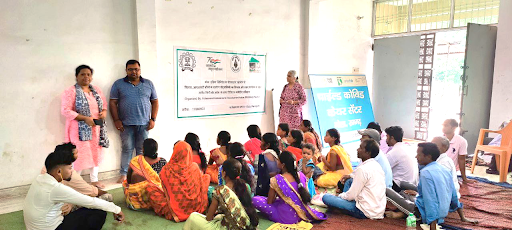
There was a proper synchronization which was seen in FPC that seed distribution, output procurement of produce, selling the same in market all came one after other. This same strategy from the input demand perspective which became successful in the first time only was adopted during the Rabi Season also.
Apart from training, one major point was that the supervisors during this time were constantly trained around the principles of governance, regenerative agriculture which included multilayer farming, use of organic input etc. The FPC got its seed license certificate also. The time from January to October 2022 was the phase where we saw everything being synchronised and channelised.
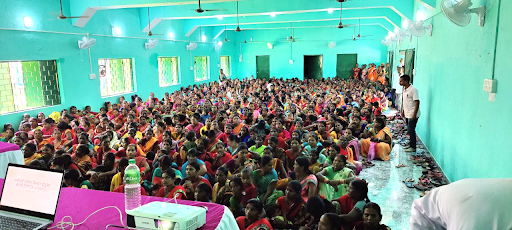
In Bokaro district, there are around 21 FPCs that are functioning and competing with them is a major challenge. Hence with all this competition of becoming the best, the FPC doing a business of Rupees Twenty Lakhs within six months from selling output produce of ladyfinger, maize, watermelon, bitter gourd shows how much effort each and every members are putting to make it a successful one. This company now has few vendors with whom they are planning to purchase the seeds next year also.
Under the Green Transformation Pathways Project[1], the two important core objectives are regenerative agriculture that adds quality to life and strong feminised institutions. Through this FPO, we can say that the first objective to some extent is fulfilled as the farmers, not all have started adopting the regenerative agriculture practices in their own land. The second objective is hundred percent fulfilled as the FPC is totally women centric. The long-term vision of the FPC is to become self-sustainable in the long run, hence slowly and steadily they have started moving in that direction also.
Produced by:

References
[1] The Green Transformation Pathways (GTP) project in the Indian states of Madhya Pradesh and Jharkhand aims to create a vibrant circular rural economy based on an extensive exchange of valuable products and services, supported by strong institutions and value chains. This is done through fostering sustainable management of natural resources and regenerative agriculture practices that add to the quality of life.

